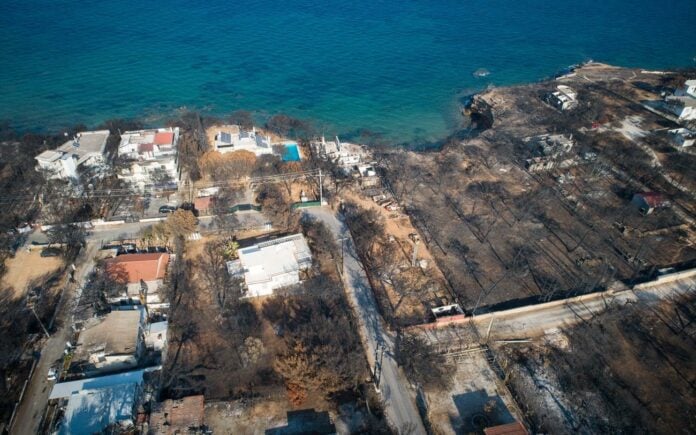The high court’s top prosecutor on Tuesday called on the judicial official assigned a closely watched case involving the deadly July 23 Mati wildfire to continue his criminal investigation, a day after a chorus of criticism greeted her announcement that another, separate administrative probe, was being conducted and should be taken into account by the latter.
Opposition political parties and the media charged that Monday’s intervention by Supreme Court prosecutor Xeni Dimitriou aimed to delay and complicate a month-long investigation by the head of the Athens first instance courts prosecutor, Ilias Zagoreos. Dimitriou had ordered Zagoreos to include an investigation conducted by a public administration inspector in his already voluminous preliminary indictment.
Following the backlash, Dimitriou reversed course on Tuesday and instructed her lower court colleague to continue with his preliminary investigation, whose results will determine whether indications of wrongdoing – including by omission or dereliction of duty by authorities and office-holders – are sufficient for a more formal investigation, and the possibility of charges being filed.
Zagoreos was instructed to continue even after Oct. 1, when he is scheduled to leave his post as head of the first instance prosecutor’s office following an end of his tenure.
In defending her intervention, the high court prosecutor maintained that she was merely informing Zagoreos of the other – administrative – investigation, with no intent to delay his actions or stop his probe.
The wildfire that swept through the coastal Mati settlement in late July has resulted in the death of 99 people so far, with seveeral others still hospitalized in intensive care units. The once pine-covered site, characterized by narrow meandering roads and holiday homes often built without required licenses and in a haphazard manner, is sandwiched between a highway running parallel to the eastern Attica prefecture coast and cliffs overlooking the southern Evoikos Gulf.
A major political fallout emerged after the catastrophe, with surviving local residents, relatives of the victims, the opposition and much of the media blaming the leftist-rightist coalition government for failing to order and implement an evacuation of the area.
In response, the Tsipras goverment first cited “indications” of multiple instances of arson, then pointed to galeforce winds that were, truly, reported on the specific afternoon, before mentioned climate change and the irregular building at the site – an ubiquitous scourge in areas of the country without town planning.














